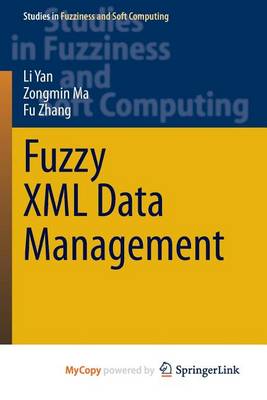Studies in Fuzziness and Soft Computing
3 primary works
Book 195
Fuzzy Database Modeling of Imprecise and Uncertain Engineering Information
by Zongmin Ma
Book 306
Fuzzy Knowledge Management for the Semantic Web
by Zongmin Ma, Fu Zhang, and Li Yan
Book 311
This book presents an exhaustive and timely review of key research work on fuzzy XML data management, and provides readers with a comprehensive resource on the state-of-the art tools and theories in this fast growing area. Topics covered in the book include: representation of fuzzy XML, query of fuzzy XML, fuzzy database models, extraction of fuzzy XML from fuzzy database models, reengineering of fuzzy XML into fuzzy database models, and reasoning of fuzzy XML. The book is intended as a reference guide for researchers, practitioners and graduate students working and/or studying in the field of Web Intelligence, as well as for data and knowledge engineering professionals seeking new approaches to replace traditional methods, which may be unnecessarily complex or even unproductive.


